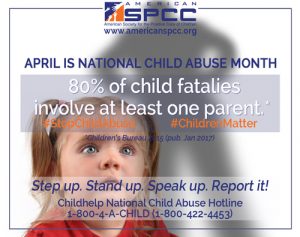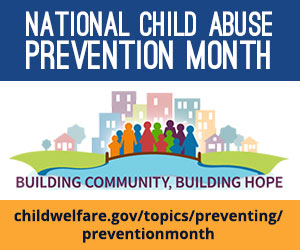August 2014
It was a hot morning, the sort of morning that warms the body and soul, as if the presence of the sun is the Lord’s way of saying, “Keep going. You’re doing just fine.” I was on my deck at the time, staring at the Delaware River and reading an email from Nuala Ní Chonchúir, a friend from Ireland. She was telling me she enjoyed my reading at the University of Vienna, where we had both had been invited to participate in the International Conference of the Short Story in English. I am a real writer, I thought, I made it. Then, as if on cue, my brain started rewinding and Elvis Presley was on the “Ed Sullivan Show” and my father was force-feeding me a quart of buttermilk because he said I liked it, and I didn’t. And, even now, when I feel as if the good Lord Himself is saying I am doing fine, I feel that thick milk working its way down my throat and I know that no matter how far I go my past isn’t far behind. I am not alone. There are lots of children living the life I once lived, and their past isn’t far behind, either, and their voices need to be heard.
It was later that same day, when the sun was going down and I wasn’t thinking about Vienna and buttermilk, I saw it: a story in The News Journal about the death of Autumn Millgan, a 4-year-old, who reminded me of me in more ways than most people can understand. It is odd, really, how much her story and mine are the same story.
This much is true: Autumn experienced more meanness than any child should. It is always that way. Children only get what they are given and when they are given busted noses and black eyes, they take it. What else can they do? Sure, they can hope that someone, anyone, will save them, but most learn that saving is hard to come by, and even harder to understand. Autumn wanted to believe that her drug-addicted, prostitute mother didn’t mean to hurt her, and would stop after the first few blows. But seeing her daughter in pain mirrored her own pain, her own disappointments, and somehow, deep down in her brain pain made sense, so she kept punching. Until, of course, Autumn was dead.
It wasn’t like there wasn’t any warning: there were lots of warnings. Family members pleaded for custody of Autumn and her brother, Ethan. In four separate investigations, social workers from Family Services visited the seedy motel where Autumn and Ethan lived with their mother and her pimp boyfriend. Officials at Family Services read the reports and decided that Autumn and Ethan, who spoke in a gibberish code, were just fine where they were. Wishful thinking or negligence? The truth may be something far more insidious: human nature resists change because change requires seeing ourselves, and others through wide-open eyes and this can be painful.
August 1958
Incorrigible. That’s what my father told my teachers and anyone else who would listen. It was a lie, of course. But, he said it anyway to cover up kicking my ankles with steel-tipped shoes and climbing in bed with me and showing me his penis. He made me touch it, too.
“You won’t go to heaven,” I said, but he cared more about his penis than heaven, so he said: “It’ll be our little secret.”
Like Autumn, it was all my fault. “You’ve been nothing but trouble since the day you were born.” My father repeated this often. He blamed me for my mother getting sick after I was born as well as a whole list of other things I knew nothing about. Years earlier, my father told a judge he didn’t want me, but my mother said, “Can’t give our own blood over to some stranger to be raised,” and the judge took me away from my loving foster mother, the only mother I knew, and made me live with strangers, who, for purposes of biology, happened to be my birth parents. That judge’s decision nearly cost me my life.


Autumn had Ethan. I had Bootsie, who didn’t know she had a sister until I was ordered to live with my biological family. Bootsie gave up her favored position in the family to protect me from our father’s demons. This didn’t please my father one bit. He told her I was poisoning her mind, but this only made Bootsie stick to me more.
We were the female versions of Cory and Lyons, the sons in “Fences,” who, without saying a word, embraced after their father’s death, knowing they shared a history only they could understand.
Autumn and Ethan spoke in code. Bootste and I spoke in code, creating our own sign language we wrote down in a marble tablet.
Bootsie told neighbors and a social worker about the abuse.
“Any drug or alcohol use?”
“No,” she, said, “just hate,” and that was that. Human nature resists change because change requires seeing ourselves, and others through wide-open eyes and this can be painful.
February 1961
At 12, I developed Raynaud’s Syndrome and Lupus. The abuse got worse.
My father tried suffocating me. Bootsie walked in. He said he was straightening my pillow. A month later, he kicked me to the floor and came after me with a butcher knife. Bootsie heard the commotion. “Put the knife down,” she said, calmly. In her hand was sewing shears aimed at his neck. “I was just joking,” he said, but I could see he knew Bootsie wasn’t backing down.
The following morning I woke up to my mother hitting me in the head with a book, “Why don’t you die?” she said. “Just die.”
My father was at the door, watching. “Nothing but trouble since the day she was born. I tried to tell you.”
After this, my father announced his new plan: Commit me to Governor Bacon Health Center. Once there, he said, no one would ever believe a word I said.
Some family service officials balked at my father’s assertion that I willed my hands purple and my legs not to walk. One report urged that I live with relatives. My parents said no.
February 1963
I arrived at Governor Bacon. There, I lived with the blind, autistic and kids with cerebral palsy and epilepsy. All like me, unwanted. The cerebral palsy children wore heavy braces on their legs, but they could walk. They wanted to read. Sometimes, I would write small words and they would trace the letters and I would use the words in a sentence.
Janet would clap. “You’re smart,” she would say. “You don’t belong here.”
February 1964
Discharge report. “As we had surmised on admission, the parents were too disturbed themselves to benefit from services, nor were they able to be a helping hand in the treatment of their daughter. The mother was guilt ridden, often became upset … and at times expressed overt rejection for Elizabeth. The father habitually evaded the subject at hand … voiced many grandiose ideas, tended to be manipulative, and frequently misinterpreted and distorted information which was given to him by various staff members.”
The report recommended I live with relatives. Again, my parents refused.
August 1964
I was released to the custody of my parents. On the way out the gate, my father whispered, “I told you I would win.” He was smiling when he said it. Human nature resists change because change requires seeing ourselves, and others, through wide-open eyes and this can be painful.
Months later, I went to a friend’s house after school and never went home again. It wasn’t a plan, unless, of course, the will to live is locked in our DNA like the color of our eyes and the size of our toes. In this is true—and, I believe it is–Autumn and I shared the same plan, only Autumn was too young to walk away and too young to know that saving is hard to come by, and even harder to understand, especially when an opportunity arises to do something good and, all too often, everything, except at-risk children, comes first.


[ssba]

